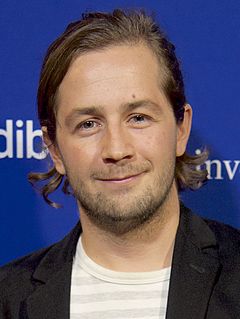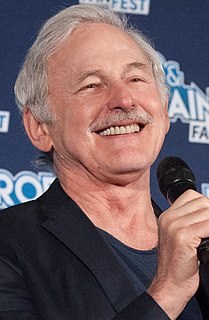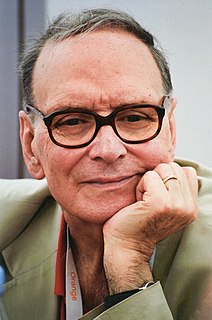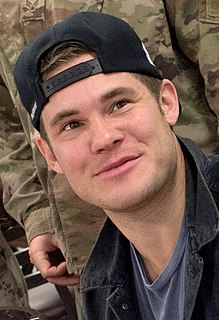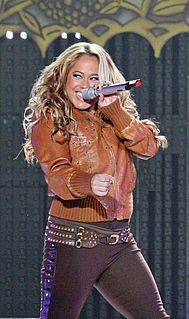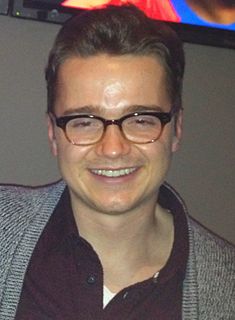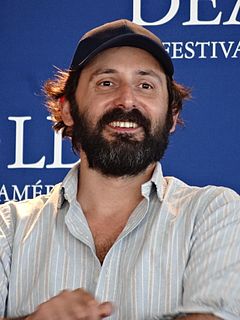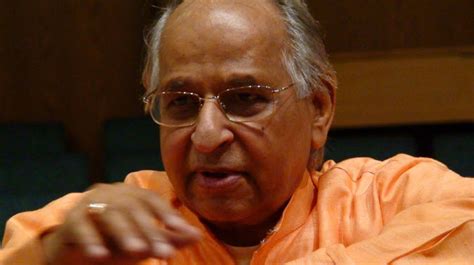A Quote by Michael Angarano
The moment that you start to read a script, you're watching the movie in your mind, and that's the one moment that you have. Then, you go off to make the movie and you become so lost in it.
Related Quotes
After you read the script, then you actually just have to be in the moment you're in, in order to make it believable. You can't give it away. You can't tip it off. For me, it's always about being truthful in the moment I'm in. Hopefully, being able to reveal what I'm feeling, you have to believe it.
You live and die two or three times making a movie. First, you write it, and the first pivotal moment comes when you can get it made. The second is in the process of making it, when the movie reveals itself to you, its flaws and its virtues. Then the most unnerving moment is when that movie is then launched into the world. It’s like bringing your kid to the first day at school and somebody points out that it has bowlegs, it is cross-eyed, or it’s gorgeous. You feel very exposed.
The only lie I really remember from my adolescence was when I was in sixth grade and I was dropped off with a couple of friends at the movie theater to go see a movie, I can't remember which one it was, and we went to go see this movie instead that was rated R. That was sort of a defining moment, that was probably the first time I had ever lied to my parents about something.
Really, the moment you have any idea, the second thought that enters your mind after the original idea is, "What is this? Is it a book, is it a movie, is it a this, is it a that, is it a short story, is it a breakfast cereal?" Really, from that moment, your decision about what kind of thing it is then determines how it develops.
